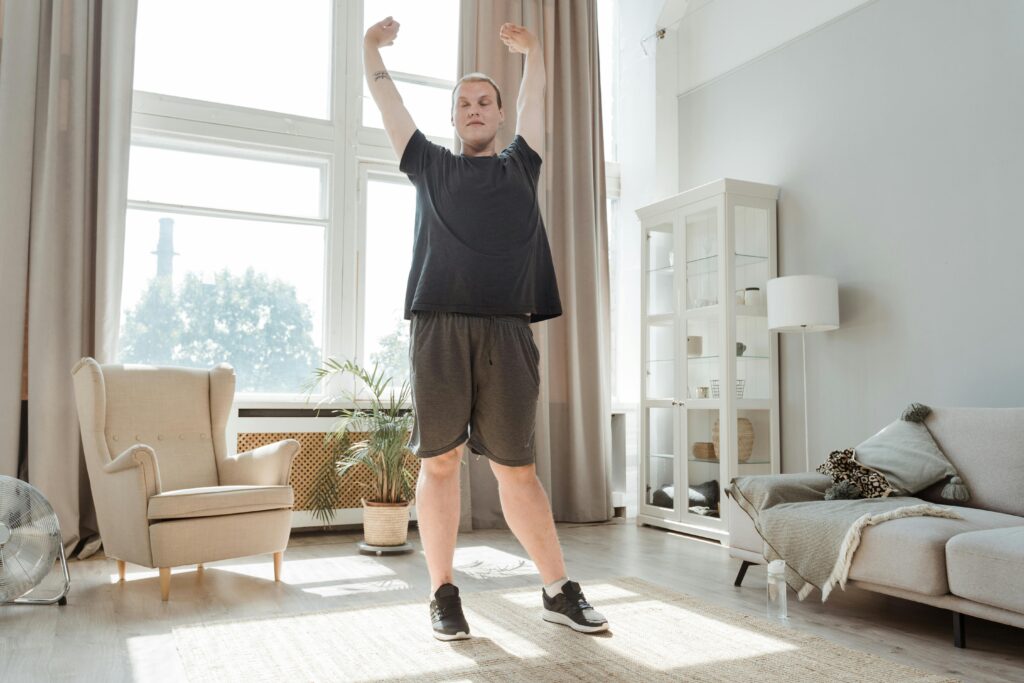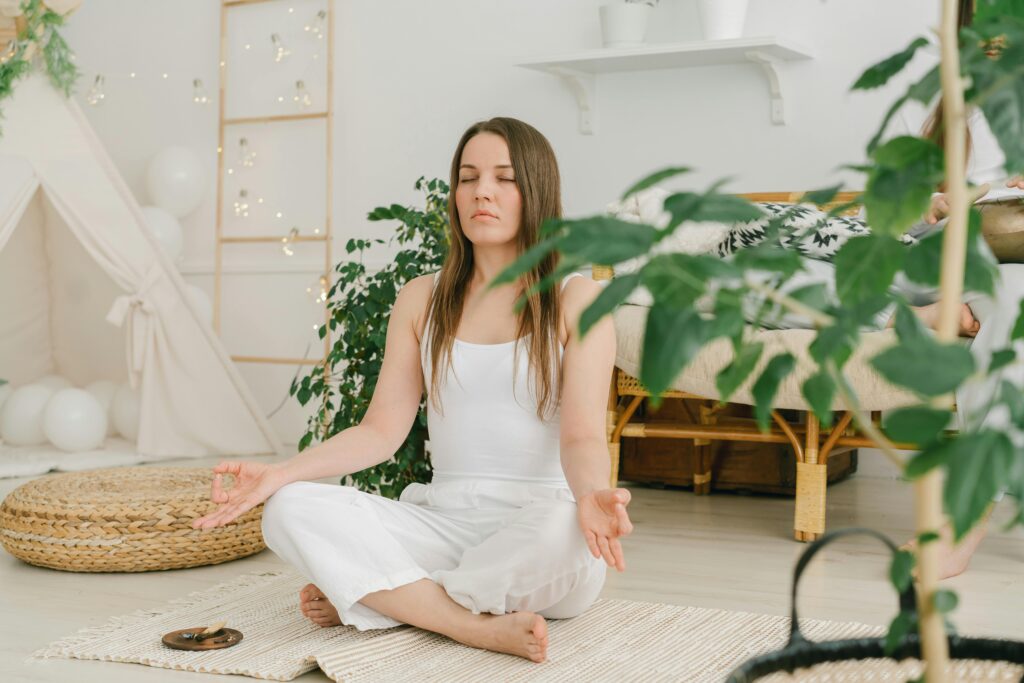A lot of people feel anxious in modern times. Anxiety can easily take over your mind and body, whether it is because of a job, personal relationships, money problems, or health issues. There are thankfully easy and helpful techniques to deal with anxious thoughts and get back to feeling peaceful. This article talks about the top ten easy ways to calm an anxious mind, utilising techniques that are natural, useful, and backed by research. These approaches are simple to use in everyday life and can benefit your mental and emotional health and wellbeing.

Practice Deep Breathing Exercises
Deep breathing is one of the best and quickest techniques to ease anxiety. When you’re anxious, your breathing may become fast and shallow. This can tell your body that you are in danger, which can make your anxiety even worse.
How it works: Deep breathing sends more oxygen to the brain, slows the pulse rate, and makes the body relax. Using your nose, inhale deeply for four counts, hold it for four counts, and then exhale slowly for four more counts. 5 to 10 times, repeat this cycle.
Extra Tip: To start your day off right, do some deep breathing in the morning. To relax before bed, do it again. Your nervous system learns to deal with stress more calmly when you do things the same way every time.
Exercise Regularly
Exercise is a great way to lower stress. Even a brief walk or some mild stretching can help a lot with anxiety.
Why it helps: Good hormones called endorphins are released when you exercise. It also lowers the levels of stress chemicals like adrenaline and cortisol. For optimal effects, try to get at least 30 minutes of moderate exercise five times a week.
Extra Tip: Doing things outside, like jogging, hiking, or bicycling, can help you relax and connect with nature at the same time.
Try Mindfulness Meditation
Mindfulness is the act of being aware of the current moment. Meditation lets you look at your thoughts without judging them, which makes worried thinking less powerful.
How to get started: Start by using apps like Calm or Headspace to guide your meditation for five to ten minutes. To keep your mind in the present, pay attention to your breath or body.
Extra Tip: If you do not like sitting still, try mindful walking or body scan meditations. You may change mindfulness to fit your lifestyle.
Limit Caffeine and Sugar Intake
What you eat and drink has a significant effect on how your body deals with stress. Too much sugar and caffeine can make anxiety worse.
What to do: Instead of coffee, drink herbal teas like chamomile or green tea. Eat meals that are balanced and include complete grains, protein, and fresh veggies.
Extra Tip: Write down what you eat and how it makes you feel in a food journal. The first step to making positive changes is to be aware.
Get Enough Quality Sleep
Not getting enough sleep can make you anxious, and being nervous can make you unable to sleep. Your brain can handle stress better when it is well rested.
Set a regular bedtime, stay away from electronics for an hour before bed, and make your sleep space peaceful to get better sleep. Before bed, you may read a book, listen to calming music, or do some light stretching.
Extra Tip: To naturally improve the quality of your sleep, use things like blackout curtains, white noise machines, or lavender essential oil.
Write in a Journal
Writing down your ideas might help you deal with your feelings and get rid of what is bugging you.
Why it works: Writing in a journal helps you sort out your thoughts, figure out what makes you feel bad, and think about how you feel. It lets you safely and constructively let your mind express worry.
Extra tip: Use questions like “What made me anxious today?” or “What am I thankful for?” to help you write. You can also keep a mood log to examine how your mood changes over time.
Connect with Supportive People
You can feel less anxious and alone by talking to someone who understands. Your problems do not have to be handled alone.
Talk to someone: Call a friend, join a support group, or think about seeing a therapist. Even short, positive interactions can make you feel better and give you a fresh way of looking at things.
Extra Tip: Get used to being around other people. Set up weekly inspections with pals or take classes in your area to meet new people and build your support network.
Use Visualisation Techniques
Guided imagery or visualisation can help your mind relax by taking it to a calm place.
How to do it: Close your eyes and imagine a serene location, such as a still forest or a beach. Give careful thought to the sights, sounds, and smells. For five to ten minutes, remain there.
Extra Tip: Make a “calm kit” containing relaxing pictures, sounds, or even a playlist that helps you picture tranquillity when you’re feeling anxious.
Focus on One Task at a Time
Multitasking can make you more stressed and less productive. When you focus on one item at a time, it helps calm your mind.
How to practise: Split your day into parts. Please make a list of things you need to do and put them in order of importance. Do not switch back and forth between texts, emails, and social media.
Extra Tip: Try working for 25 minutes and then taking a 5 minute break by using the Pomodoro technique.
Practice Gratitude Daily
If you focus on the wonderful things in your life instead of the bad things, your anxiety will go down a lot.
Every day, write down three things that make you happy. A nice dinner, a kind word, or a beautiful day can make you happy. This teaches your brain to focus on the good things.
Extra Tip: Keep a journal by your bed and write in it every night. Telling others how thankful you are also makes it more powerful.
Conclusion
Everyone deals with anxiety in their way, but these easy tips will help you relax your mind. The most important thing is to be consistent. Add these habits to your daily life and see which ones work best for you. Over time and with effort, you will be able to handle stress better and live a calmer existence.


